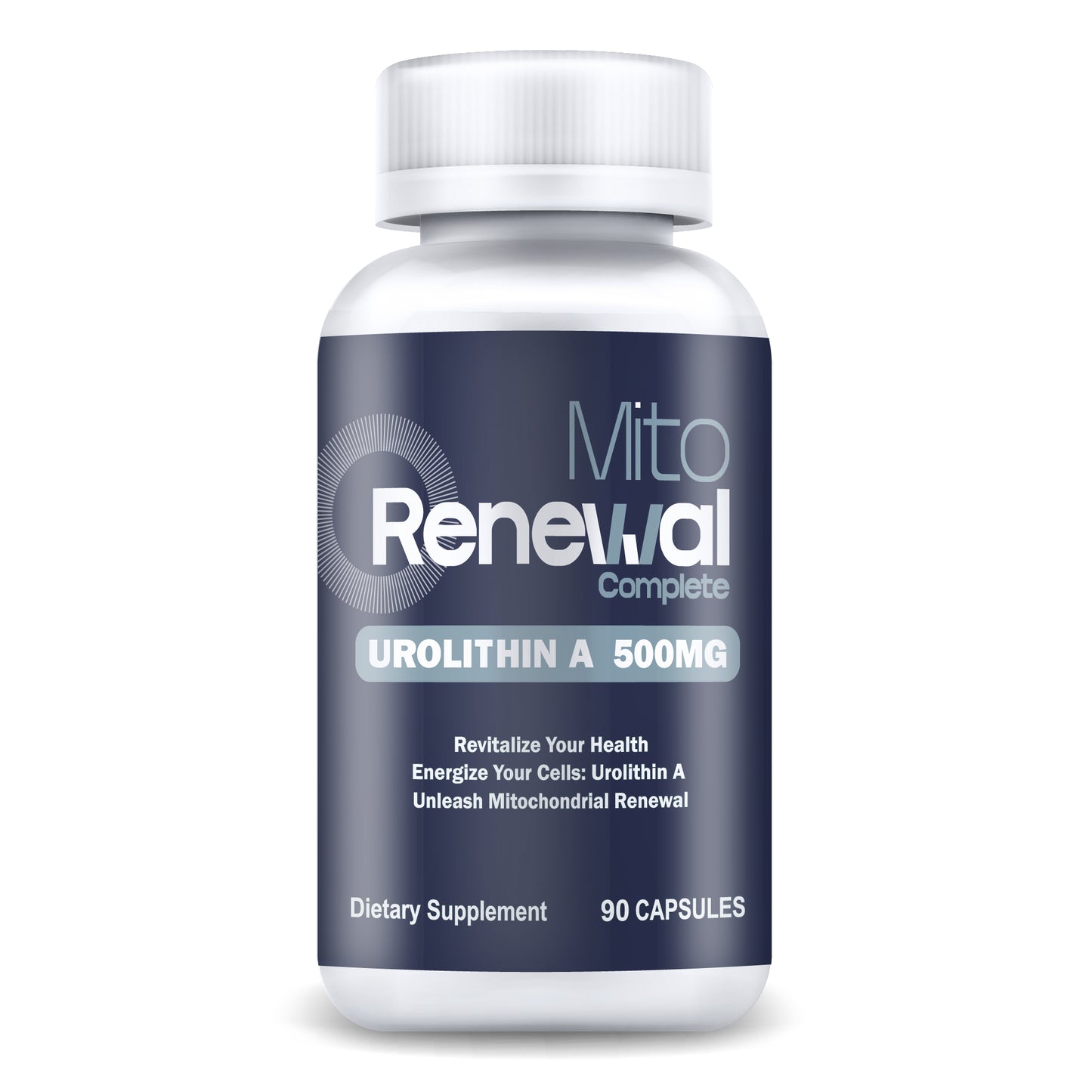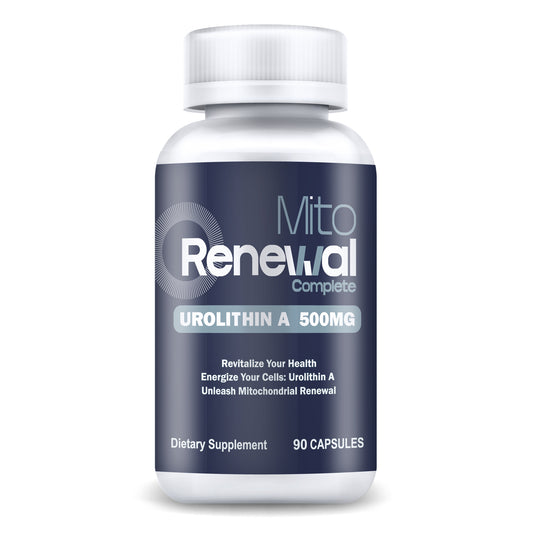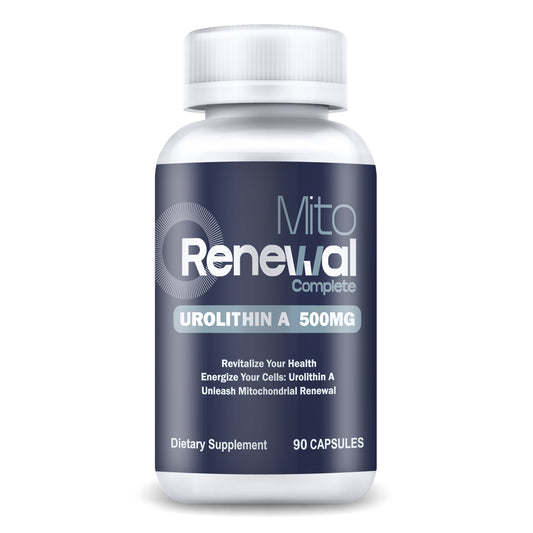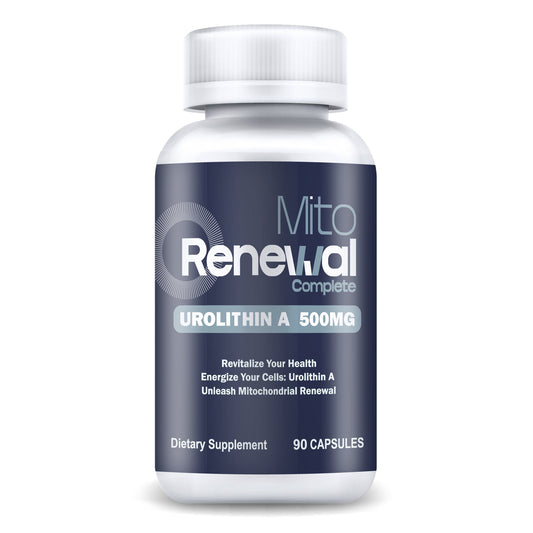Best Sellers
-
Mito Renewal Complete - Urolithin A 500mg 90 Capsules
Regular price From $129.90Regular priceUnit price / per -
Mito Renewal Complete - Urolithin A 500mg 180 Capsules
Regular price From $129.90Regular priceUnit price / per -
Mito Renewal Complete - Urolithin A 500mg 270 Capsules
Regular price From $129.90Regular priceUnit price / per

Cellular Rejuvenation
Urolithin A has been shown to activate a natural cellular cleanup process known as autophagy, helping your cells rid themselves of damaged components and promoting overall cellular health.

Muscle Support
Research suggests that Urolithin A may enhance muscle function by improving mitochondrial health, potentially leading to increased endurance and performance during physical activities.

Anti-Inflammatory Properties
Urolithin A exhibits anti-inflammatory effects, assisting in reducing oxidative stress and inflammation within the body, contributing to a more balanced and resilient system.
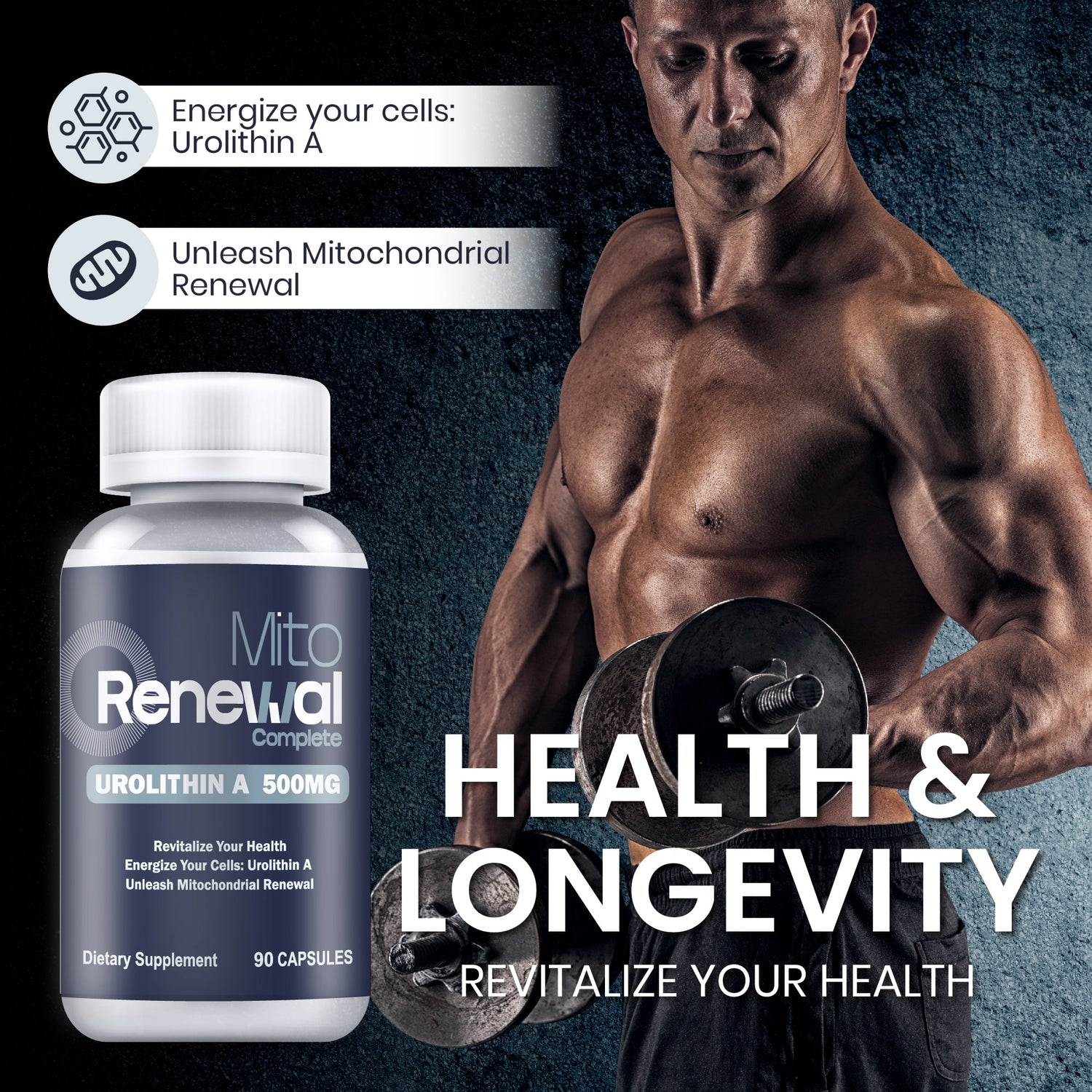
Aging Support
As a potential longevity promoter, Urolithin A may play a role in supporting healthy aging by optimizing cellular function and mitigating some of the effects of aging on the body.
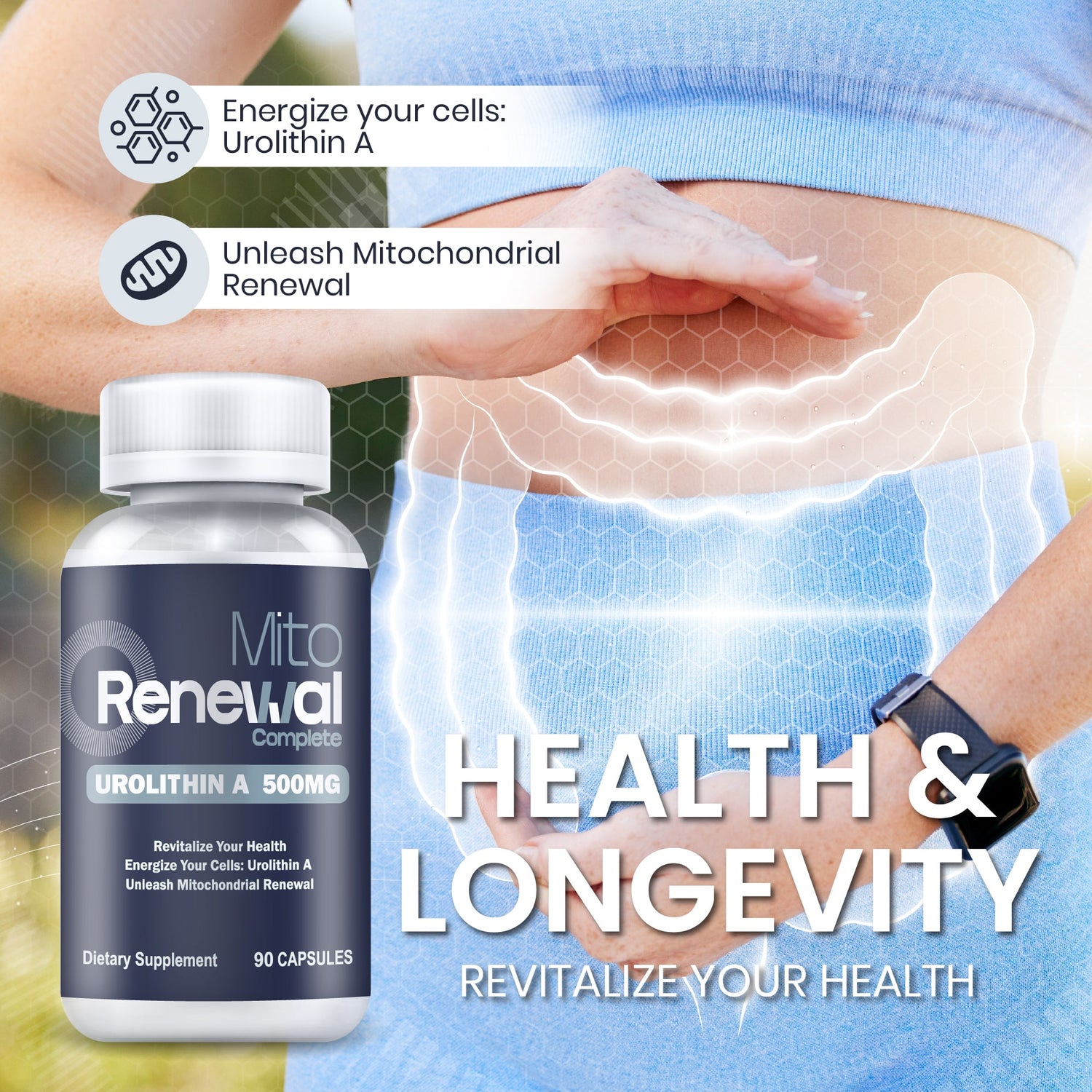
Digestive Wellness
Urolithin A is derived from compounds found in certain fruits, particularly pomegranates. It may positively impact gut health, supporting a balanced and thriving digestive system for overall well-being.

Urolithin A works at the molecular level by activating a process called autophagy. Imagine your cells as tiny factories; over time, they accumulate waste and damaged parts. Urolithin A acts like a supervisor, signaling the cells to clean up and recycle these damaged components. This process, autophagy, helps the cells function more efficiently and promotes overall cellular health. So, it's like giving your cells a boost, helping them tidy up and work at their best, which can contribute to better overall well-being.
Collapsible content
Scientific Studies on Urolithin A
Singh, B., Panday, R. K., Nahar, U., & Sharif, A. L. (2019). Urolithin A, a novel natural compound to target PI3K/AKT/mTOR pathway in pancreatic cancer. Molecular Cancer Therapeutics, 18(2), 301-311.
Ryu, D., Mouchiroud, L., Andreux, P. A., Katsyuba, E., Moullan, N., Nicolet-Dit-Félix, A. A., ... & Auwerx, J. (2016). Urolithin A induces mitophagy and prolongs lifespan in C. elegans through mitogen-activated protein kinase-1 and sirtuin-1-dependent pathways. Nature Communications, 7, 1176.
Rimbaud, M., Guiraud, T., Jouvion, G., Simeone, S., Rouffiac, K., Moulis, C., ... & Py, G. (2019). Urolithin A attenuates oxidative stress and muscle damage in immobilization-induced muscle atrophy in rats. Journal of Applied Physiology, 127(6), 1644-1653.
Sun, W., Li, J., Zhou, H., Qiu, Z., Wang, Y., Liu, Q., ... & Li, X. (2020). Urolithin A induces autophagy and senescence in colorectal cancer cells by activating NAD-dependent deacetylase sirtuin-1. Aging, 12(1), 891-901.
García-Maldonado, M., Valladares, L., Velázquez, F. M., Chavez, E., Olivos, M. E., Muñiz, J., ... & Zazueta, C. (2017). Urolithin A shows anti-inflammatory and anti-catabolic effects in human osteoarthritic chondrocytes. Osteoarthritis and Cartilage, 25(5), 764-771.
Yuan, H., Ma, Q., Ye, L., Piao, G., & Zhang, Y. (2018). Urolithin A suppresses the proliferation of endometrial cancer cells by mediating estrogen receptor-α-dependent gene expression. Molecular Nutrition & Food Research, 62(9), 1700852.
Shen, S., Wang, Z., Shan, Z., Li, Y., & Jiang, L. (2020). Urolithin A protects against lipopolysaccharide-induced cognitive deficits and neuroinflammation in APP/PS1 mice. Journal of Neuroimmune Pharmacology, 15(1), 148-161.
Wu, W., Li, G., Zhao, J., Li, Y., & Shi, X. (2019). Urolithin A protects against lipopolysaccharide-induced cognitive deficits and neuroinflammation by inhibiting NF-κB and NLRP3 inflammasome activation. ACS Chemical Neuroscience, 10(9), 4006-4018.
Choi, J., Song, S., & Kang, Y. (2021). Urolithin A, a metabolite of ellagic acid, inhibits osteoclastogenesis by suppressing the RANKL signaling pathway through the modulation of reactive oxygen species. International Journal of Molecular Sciences, 22(7), 3415.
Song, S., Qiu, D., Luo, F., Wei, J., Wu, M., Wu, H., ... & Zhang, H. (2020). Urolithin A ameliorates insulin resistance and hepatic steatosis by modulating the gut microbiota in diabetic mice. Molecular Nutrition & Food Research, 64(2), 1900617.
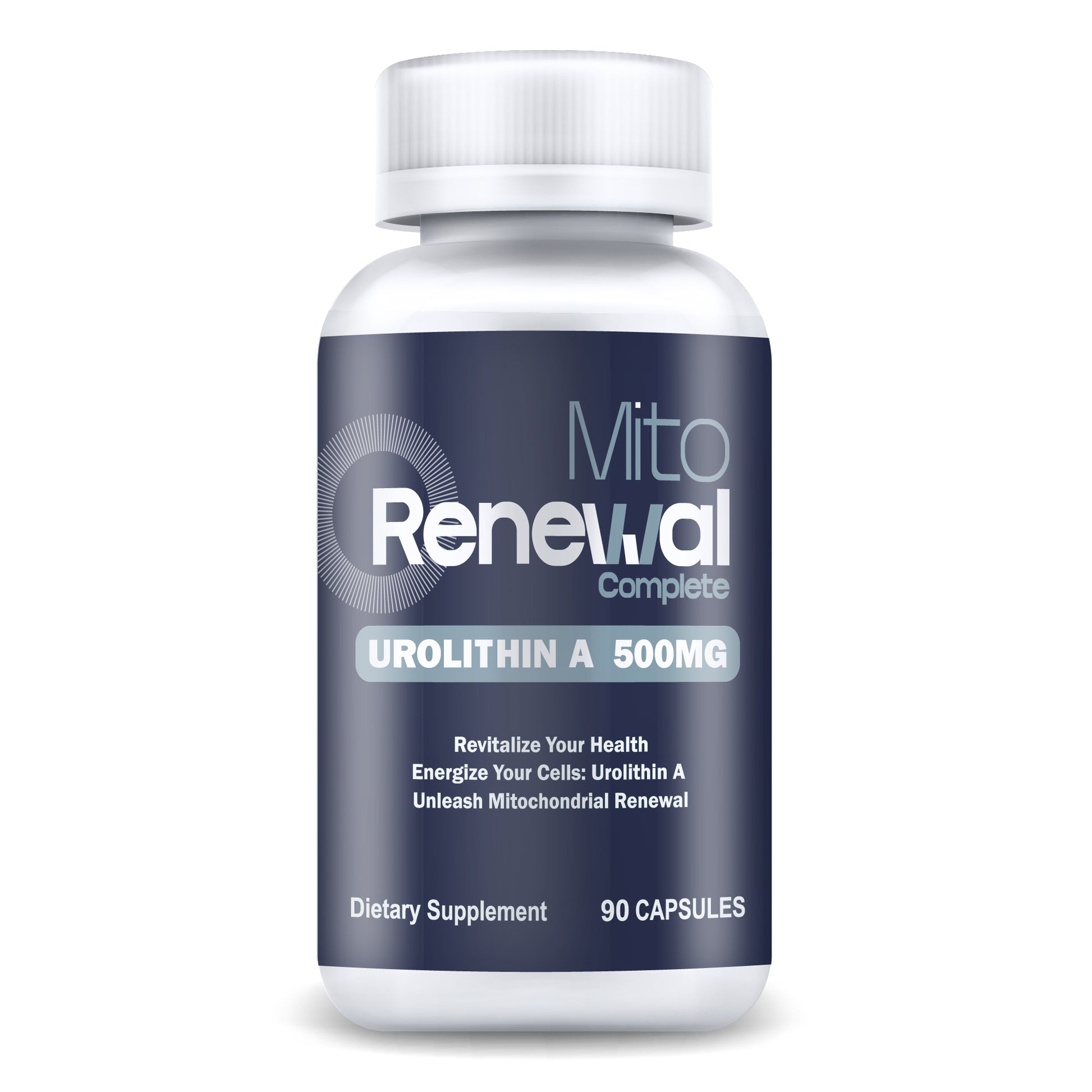
Mito Renewal
Mito Renewal Complete - Urolithin A 500mg 90 Capsules
Share
